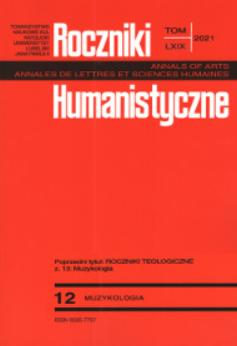JEAN-BAPTISTE ROUSSEAU’S POETIC CANTATAS AND THEIR PLACE IN THE CULTURE OF FRANCE: A PRELIMINARY STUDY
JEAN-BAPTISTE ROUSSEAU’S POETIC CANTATAS AND THEIR PLACE IN THE CULTURE OF FRANCE: A PRELIMINARY STUDY
Author(s): Małgorzata GamratSubject(s): Cultural history, French Literature, 18th Century, 19th Century, Theory of Literature
Published by: Towarzystwo Naukowe KUL & Katolicki Uniwersytet Lubelski Jana Pawła II
Keywords: Jean-Baptiste Rousseau; French literature; Poetic cantata; 18th-19th century;
Summary/Abstract: In the first half of the eighteenth century, the poetic cantata invented by Jean-Baptiste Rousseau (1670–1741) was one of the major genres of French literature, with a theory developed by its founder, who also made it popular in his own country and later elsewhere in Europe (Knabe et al. 201; Dorival 13–15). This genre played a key role in the emergence of the secular French music cantata characteristic of that country’s culture. The poetic cantata appeared at a time of great historical and artistic changes in France, in the late years of Louis XIV’s reign, the regency of Philippe I, Duke of Orléans, and Louis XV’s ascension to the throne. It was a period of worldview transformations (marked, among other, by the sanctimonious piety of Louis XIV), which entailed such changes in culture as the rejection of the Italian theatre by the king, the gradual domination of French authors and language on the stage, as well as a decrease in Italian music’s and musicians’ presence in spectacles, at the royal court, and in many French salons.
Journal: Roczniki Humanistyczne
- Issue Year: 69/2021
- Issue No: 12
- Page Range: 231-238
- Page Count: 8
- Language: English

